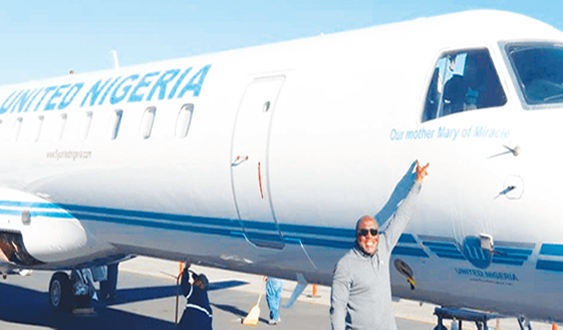- Unruly passengers: Nigeria, ICOA Member states plead for protocol amendment
- United Airlines Announces Q1 2024 Financial Results, Exceeds Revenue Projection
- NCAA suspends licences of three ‘rogue’ airlines, to sanitise charter operation business
- Price war: Savouring int'l route amid frustrating domestic fare conspiracy
- AviAssist, Landover team up for W’African aviation safety
New Airlines Face Survival Challenges In 2021

The second wave of Coronavirus (COVID-19) could make return to profitability by airlines, especially in Nigeria, extremely difficult.
For those already in operation, the situation looks dire with no hope in sight that they would survive and offer the same kind of services they offered pre-COVID-19.
Year 2021 may become more difficult for them except there is a quick turnaround in the economic situation coupled with swift restructuring of airlines’ modus operandi. The outgoing year was tough particularly for airlines and aviation. 2021 looks bleaker for the carriers.
Start-ups like Cally Air, an airline to be financed by the Cross Rivers State Government, United Nigeria Airlines and Green Africa Airlines may not solve the problem of the sector. Cally Air is a proposed Nigerian joint venture to be based at Calabar airport.
The start-up is expected to be bankrolled by the Cross River State Government. United Nigeria is a start-up carrier to be based at Akanu Ibiam International Airport, Enugu.
The airline, which already has its Air Operator Certificate (AOC), aims to commence domestic services in the first quarter 2021. It plans to operate a fleet of four Embraer E145s initially with services from Enugu to Port Harcourt, Abuja and Lagos.
The launch date for another Nigerian startup, Green Africa Airways (Q9, Lagos), has been delayed to early 2021, a spokesperson confirmed.
“We worked with the Nigerian Civil Aviation Authority (NCAA) to get our certification finalised,” the spokesperson said, but declined to elaborate.
Green Africa, in a statement, said it had received its Air Transport License (ATL) from the Nigerian government and had signed a strategic partnership with Nigeria’s First City Monument Bank (FCMB), which gives the airline access to short-to-medium- term liquidity.
Experts are of the view that the coming of the three airlines may be at the wrong time because of the shrinking travel market.

Chief Executive Officer, Aglow Aviation Services, Mr. Tayo Ojuri, told Woleshadarenews that aviation is driven by disposable income, adding that the sector is not likely to rebound until 2023.
The second wave of COVID-19, he stated, would disrupt travel as training, meetings and other forms of businesses will be shut in the next three months.
“When this happens, it means the flights are not going to have passengers. Government is a major spender.
“The country is in recession and we are not likely to get out of recession until second quarter 2021. The airlines are not going to have passengers until the peak Christmas season. Aviation is driven by disposable income and a lot of people do not have that income.
“We have 70 per cent of business travellers who make the bulk of air travel in the country. What we have left is leisure travel. Leisure travel is not a driver for airline business. I honestly don’t know why they are coming now except they have a different business model that is sustainable.

United Nigeria Airlines
“This is a perilous time for them to think of coming in. What they need to do is to be creative and bring something new onboard and not acquisition of B737 aircraft. Foreign exchange is high. It is a very herculean task for them. I don’t think it is the right time to start. They may learn their lesson the hard way,” Ojuri said.
Managing Director of Aero Contractors, Capt. Ado Sanusi, lamented that the country was in recession and a very difficult time for airlines and new entrants.
According to him, “In 2021, it will continue like this, but I believe that there would be some new entrants and there would be some mergers and probably we will stabilise with the vaccines that are coming.
The stabilisation will come a little faster than you think. But the effect of COVID-19 will be here like for five or 10 years, but we will see probably some mergers and some entrants into the market.
By the end of June, it was reported that airlines had only about eight and a half months of cash left (as a median) and so cash burn will be a critical factor for airline survivability moving in to 2021. The International Air Transport Association (IATA) is forecasting that the industry as a whole is projected to turn cash positive in late 2021.
Google+

